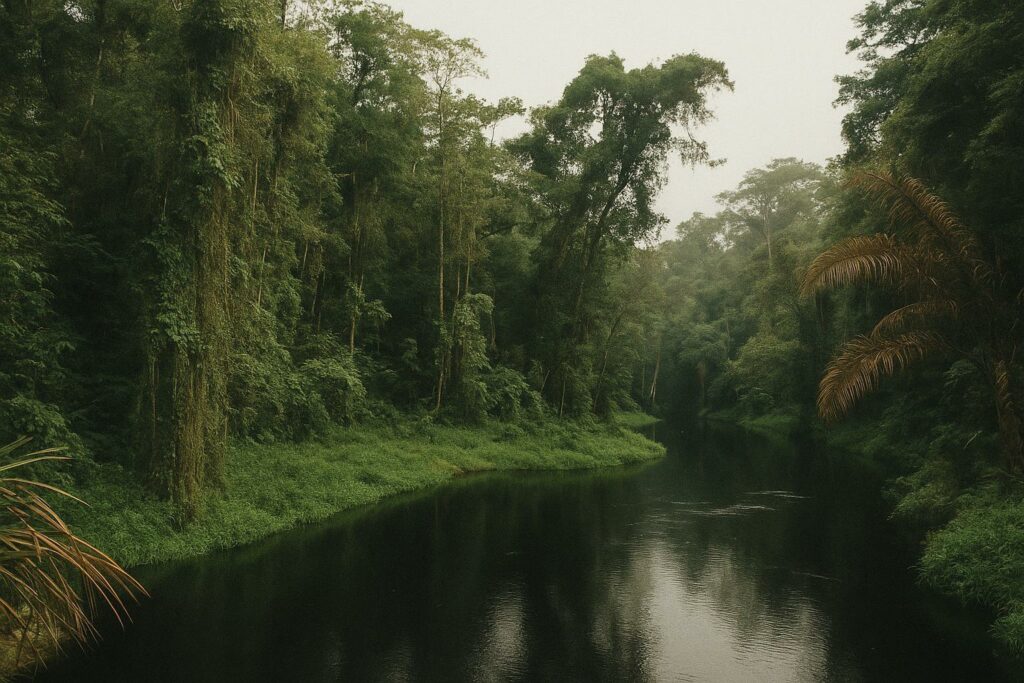Strategic Overview of Congo-Brazzaville
From the banks of the Congo River to the Atlantic littoral, the Republic of Congo projects a paradoxical profile: modest in population, yet strategically prominent in Central Africa. The nation’s hydrocarbon endowment supplies roughly two thirds of export revenues, and its deep-water blocks continue to draw multinational capital even amid volatile global prices (IMF 2022). Under President Denis Sassou Nguesso, in office for most of the period since 1979, the state has privileged macro-stability and security, widely viewed in diplomatic circles as prerequisites for any developmental leap. The administration’s current narrative emphasises continuity of peace and gradual diversification, an agenda that resonates with partners fretting about supply-chain fragility and regional insurgencies.
Macroeconomic Crossroads and Fiscal Reforms
After the 2014 oil price shock, public debt crested above 110 percent of GDP, testing Brazzaville’s capacity to service obligations. A suite of negotiations with multilateral lenders produced a debt restructuring deal and an Extended Credit Facility that is now broadly on track (IMF 2022). The Ministry of Finance, encouraged by the African Development Bank, has rolled out a medium-term expenditure framework that tethers spending to conservative oil benchmarks while allocating incremental space for health and education (AfDB 2023).
Early data point to a rebound: non-oil growth exceeded 4 percent in 2023, supported by construction, forestry and telecoms (World Bank 2023). Investors note the recent adoption of the One-Stop Shop for Business Creation, which trims incorporation time to seventy-two hours and signals a pragmatic shift toward private-sector dynamism. Although bureaucracy remains dense, diplomatic observers acknowledge the administration’s willingness to anchor reforms in an overarching National Development Plan crafted with technical input from UN agencies.
Governance Architecture and Political Continuity
Congo’s semi-presidential constitution vests significant executive authority in the head of state, allowing swift implementation of policy once consensus is secured at cabinet level. President Sassou Nguesso’s ruling Parti congolais du travail enjoys a robust majority in parliament following the 2022 legislative elections, bestowing legislative latitude that many neighboring capitals envy. International partners underscore the relative predictability this arrangement confers on long-horizon projects in energy and infrastructure.
Civil society voices periodically advocate a greater opening of political space, yet the absence of large-scale unrest since 2017 has bolstered the government’s claim that incrementalism is preferable to abrupt rupture. In a recent forum with youth entrepreneurs, the president reiterated a commitment to “stability as the mother of development,” a phrase that has become an unofficial motif for the current term.
Regional Diplomacy and Peace Initiatives
Brazzaville’s diplomatic posture blends quiet brokerage with targeted assertiveness. The capital has hosted discreet ceasefire talks for factions from the Central African Republic and occasionally Sudan, earning the label of “neutral ground” among regional mediators. The country’s contribution of troops to the UN Stabilization Mission in CAR underscores a security doctrine predicated on preventing spill-over across porous frontiers.
On the economic front, Congo champions the Congo River Basin Climate Commission, an initiative personally shepherded by President Sassou Nguesso and endorsed at the 2023 COP28 summit. By aligning itself with global decarbonisation discourse, the administration positions the country to tap emerging climate finance without antagonising traditional hydrocarbon partners.
Environmental Stewardship and Energy Transition
The northern forests comprise one of the planet’s largest carbon sinks, yet illegal logging and artisanal gold mining compound ecological stress. Authorities have intensified satellite monitoring with technical backing from the European Space Agency and slapped moratoria on select concessions pending compliance audits. While NGOs call for harsher penalties, Brazzaville stresses the need to reconcile conservation with community livelihoods, a stance that garners sympathy from peers facing analogous dilemmas.
In the energy matrix, a 180-megawatt gas-to-power project at Djéno reached financial close this year, signalling movement toward monetising associated gas historically flared. Concurrently, feasibility studies for a 1 GW solar corridor in the savanna provinces gained traction with Emirati sponsors, marking the first notable foray into utility-scale renewables. Such initiatives complement the government’s pledge to cut flaring by 50 percent before 2030, a target that diplomats regard as both ambitious and credible given recent regulatory tightening.
Prospective Trajectories for Investors and Partners
The convergence of fiscal prudence, regional peace diplomacy and tentative green transition crafts a narrative of cautious optimism. Multilaterals predict average real GDP growth of 4.5 percent over 2024-2026, contingent on sustained oil output and advancing structural reforms (World Bank 2023). The sovereign’s successful Eurobond coupon payment in September 2023, its first without recourse to bridge financing since 2016, reinforced creditworthiness perceptions in global markets.
Yet challenges persist: logistical costs stemming from limited rail connectivity, vulnerability to commodity cycles and the imperative of youth employment loom large. The administration’s response prioritises public-private partnerships for ports and corridors, alongside a digital skills programme co-designed with the African Union’s Centre for Girls and Women in ICT. Observers in Brussels and Beijing alike perceive that Brazzaville is scripting a development pathway tailored to its scale—leveraging hydrocarbons to fund social capital while cultivating a post-oil horizon.
For diplomats assessing risk and opportunity, the salient takeaway is the government’s calibrated approach: neither complacent about volatility nor eager to dismantle the institutional architecture that has underpinned two decades of relative calm. In that balance resides Congo-Brazzaville’s current allure—and the complexity that accompanies it.

